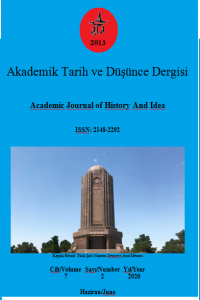Phraseological units in which complex and compound numbers are used in English
The article deals with phraseological units in English, in which complex and compositional numbers are used. It is noted that studies of phraseologisms are one of the current directions of modern linguistics. From this point of view, the analysis of number-containing phraseological combinations is also important. The author shows that numbers play an important role in the formation of phraseological units as a part of speech. Of them, complex and compositional numbers are less productive than simple quantitative numbers. It is also pointed out that numbers surround us everywhere and that they are information which send some kind of messages to our consciousness. For example, the number of a van, the price tag in a store, the size of a suit we like —these are all numbers. In the article, phraseological units with complex and compound numbers such as 'a million and one', 'twenty-four seven', '$64,000 dollar question', 'Ninety-nine out of a hundred', 'Eighty-six', 'eight-hundred-pound gorilla', and 'Catch-22' are encountered. The meanings of these phrases are noted and reinforced within the sentence. The author comes to the conclusion that phraseological units containing complex numbers very rarely evoke conventional scenes in the minds of speakers, so the meaning motive of the analyzed expressions is explained not only by cognitive mechanisms such as metaphor, metonymy, and conventional knowledge but also by folk etymology.
Phraseological units in which complex and compound numbers are used in English
The article deals with phraseological units in English, in which complex and compositional numbers are used. It is noted that studies of phraseologisms are one of the current directions of modern linguistics. From this point of view, the analysis of number-containing phraseological combinations is also important. The author shows that numbers play an important role in the formation of phraseological units as a part of speech. Of them, complex and compositional numbers are less productive than simple quantitative numbers. It is also pointed out that numbers surround us everywhere and that they are information which send some kind of messages to our consciousness. For example, the number of a van, the price tag in a store, the size of a suit we like —these are all numbers. In the article, phraseological units with complex and compound numbers such as 'a million and one', 'twenty-four seven', '$64,000 dollar question', 'Ninety-nine out of a hundred', 'Eighty-six', 'eight-hundred-pound gorilla', and 'Catch-22' are encountered. The meanings of these phrases are noted and reinforced within the sentence. The author comes to the conclusion that phraseological units containing complex numbers very rarely evoke conventional scenes in the minds of speakers, so the meaning motive of the analyzed expressions is explained not only by cognitive mechanisms such as metaphor, metonymy, and conventional knowledge but also by folk etymology.
___
- Andreici, T. M. (2017). Phraseological units with sacred numbers in Russian and Serbian. Professional communication and translation studies. West University of Timișoara, 92-103.
- Dronov, V.V. (2007). Yazykovaya kartina mira. Russkiy yazyk za rubezhom, 5, (204), 5-7.
- Farlex International. (2017). Idioms and Slang Dictionary.
Valiyeva, N. (2010). Azerbaijani-English-Russian phraseological dictionary, 1 Azernashr.
- Valiyeva, N. (2010). Azerbaijani-English-Russian phraseological dictionary, 2, Azernashr.
